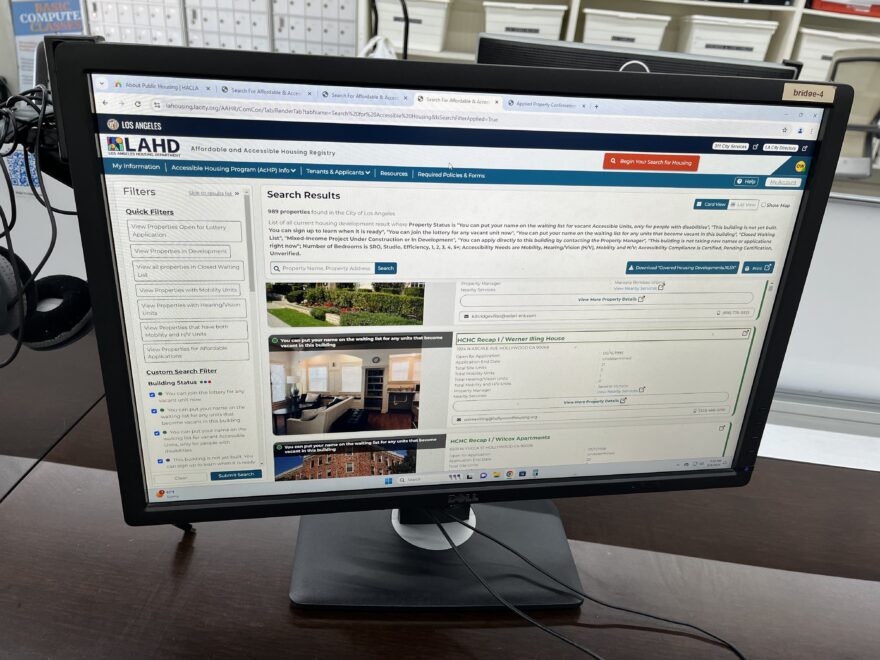At Bridge the Digital Divide, we are committed to equipping socially marginalized individuals with the essential digital skills they need to navigate the complexities of modern life. This commitment is illustrated by the progress of two of our senior students, both reentry individuals, who are living in transitional reentry housing and learning digital skills for the first time. Their journey with us highlights the transformative power of digital literacy in meeting basic and urgent needs—like securing permanent housing.
The Challenge
These students entered our program with minimal experience in using technology. They barely knew how to hold a mouse, let alone navigate the internet. However, their pressing need to find stable, permanent housing drove them to attend our digital skills classes daily. Their situation is not unique; many reentry individuals face significant barriers to accessing essential services due to a lack of digital literacy.
The Learning Process
Our approach began with the basics—teaching them how to use a computer, navigate their smartphones, and compose structured emails. These foundational skills are crucial for anyone in today’s digital world, but for these students, they were lifelines.
Navigating the LAHD Affordable Housing Registry
One of the critical digital skills our students needed was learning how to navigate the Los Angeles Housing Department’s (LAHD) affordable and accessible housing registry website (lahd.org). This website is a vital resource for individuals seeking affordable housing in a city where the demand far exceeds the supply.
Learning to Compose Emails:
We focused on teaching our students how to compose fully structured emails to connect with property managers of affordable housing units. Effective communication is key in such competitive environments, and our students learned how to:
– Use email to introduce yourself and inquire about available units.
– Follow up with property managers to express continued interest.
– Use copy and paste shortcuts to send multiple, quick email inquiries, maximizing their chances of securing a unit.
Filling Out Online Forms and Applying for Housing Lotteries
A significant part of our training involved guiding students through the process of filling out online forms to apply for permanent housing lotteries. These forms can be daunting for someone unfamiliar with digital tools, but with our step-by-step guidance, our students learned how to:
-Create accounts on the LAHD website.
-Complete and submit applications for housing lotteries.
-Upload necessary documents and ensure all fields are correctly filled out.
Deciphering Legitimate Sources
In the digital world, discerning between legitimate and potentially harmful websites is crucial. We trained our students to:
– Identify trustworthy websites by looking for .gov or .org domains, as opposed to commercial .com sites that might not be reliable.
– Use search engines effectively to find housing opportunities and resources.
The Outcome
The digital skills our students acquired are more than just technical abilities—they are essential tools for empowerment and self-sufficiency. By learning to navigate the LAHD website, compose emails, and apply for housing lotteries, these reentry seniors have taken significant steps toward securing permanent housing.
Impact on Quality of Life
The importance of these skills cannot be overstated. For socially marginalized individuals, the ability to access and use digital tools is directly tied to their ability to meet basic needs like housing, employment, and communication with caseworkers. In a world that increasingly relies on digital platforms, lacking these skills can mean being left behind.
The Bigger Picture
This case study exemplifies why our mission at Bridge the Digital Divide is so critical. In a society that often values youth and progress, it’s vital that we ensure elders, BIPOC, and socially marginalized communities are not excluded from the digital landscape and the opportunities it offers.
Digital literacy is not just about learning how to use a computer—it’s about opening doors to essential services, improving quality of life, and providing the tools necessary to thrive in an increasingly digital world.
By offering these building blocks, we are not only addressing immediate needs but also supporting the ongoing development of a continuum of digital skills that will serve our students in their future endeavors. Our work is about more than just technology; it’s about empowering individuals to take control of their lives and access the resources they need to build a better future.
Bridge The Digital Divide 501 (c) 3

